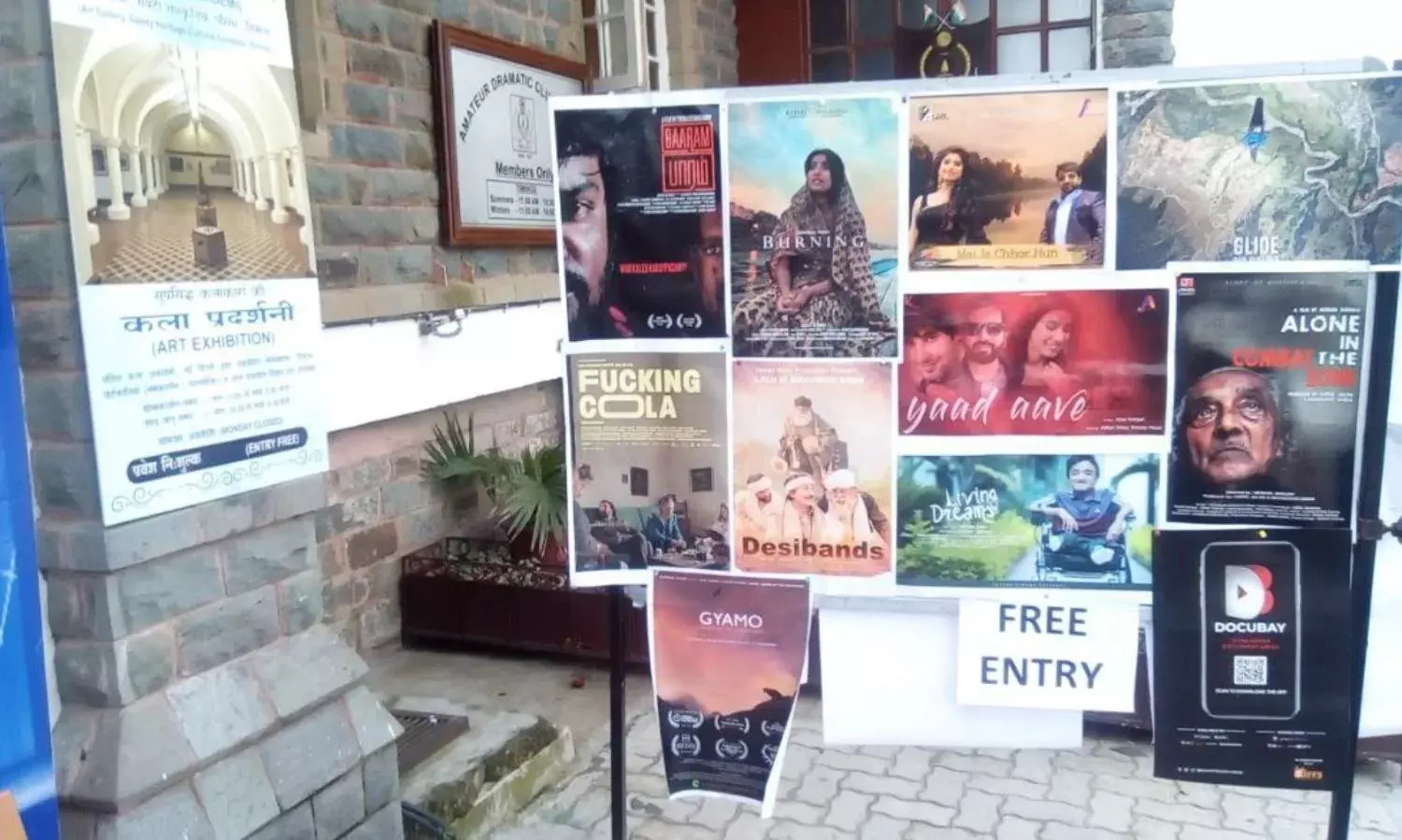Shimla Film Festival Gives a Call to Dream in Diversity
It has become the norm for Iranian films to steal the show, and IFFS was no different

SHIMLA: Why have we as individuals stopped dreaming? Why do Indians as a nation need to dream in absolute diversity? This was the message that emerged from the Fifth International Film Festival of Shimla, which concluded on Sunday evening at the town’s iconic Gaiety Theatre.
Over 75 documentary, animation, short and feature films were screened at the three-day event, including more than 30 foreign entries from countries like the US and UK, Iran, the Netherlands, Poland, Turkey, China, Kuwait, Australia, France, Israel, Cyprus and Finland.
Visiting the event was young Shabana from Mumbai, who plays the protagonist in the short film Ripples: Tarang. A blind adolescent who acquired the ability to paint through identifying fragrance and texture, Shabana was helped by her teacher Sumeet Patil, who has also directed the film. It revolves around a blind girl, Lata, who brings laurels to her government school in Maharashtra.
“There is nothing that we cannot do. We just need an opportunity,” Shabana told the audience amidst thunderous applause.
Also present at the venue was singer Ajay Sehgal, who lost his vocal cords in 1998. But by 2017 he had healed enough to feature in the music video ‘Mein Iss Chhor Hoon’ along with Jyotica Tangri. The video was one of the festival entries from Himachal Pradesh.
There was also a filmmaker moving around in the artificial Jaipur Foot: his presence embodied the message of the documentary Dance of Joy, created by British filmmaker Christine Booth, about the Jaipur Foot that’s transforming the lives of thousands of people around the world.
One of the most appreciated Indian films screened was Village Rockstars by Rima Das, which revolves around the dream of a young Assamese girl, Dhunu, who living in abject poverty wants to own a real guitar and form a band with the local boys.
With her friends, Dhunu makes replicas of musical instruments from cardboard and other discarded utility goods. They then deliver a band performance, their heads banging like real rockstars.
There was also the well-researched Rockumentary: Evolution of Indian Rock by former television journalist Abhimanyu Kukreja that stole the show. How many people are aware that a music contest in Shimla in the early seventies changed the fortunes of Indian rock? Shimla Beat was the contest, in which all the top bands of the time participated.
Wonder how many from the generation that grew up watching Doordarshan remember the Gary Lawyer musical awareness campaign against smoking that went, “With a cigarette in my hands I felt like a man.” Or if you’re into the Indian rock scene, perhaps you know of a fellow called Iqbal Singh, who was setting the stage on fire back in the day, performing Elvis Presley songs?
There are lots more such information in the film, which takes viewers on a nostalgic trip. It talks about occasions when Indian bands opened for the likes of Deep Purple, and also underlines how rock talent in India has always lived in the shadow of Bollywood.
Another interesting screening Desibands by Sukhwinder Singh, which deals with the vanishing tribe of musicians and singers who were known to perform at marriages in Punjab. The film shows how titillating performances by dancing girls have sounded the death knell for such performers, pushing them to the margins of society.
A small but powerful short film, Aapke Aa Jaane Se (Daddy’s Got Moves) by Shiladitya Bora, revolves around the dreams and simple lifestyles of the lower middle class that have now been killed by mobile phones.
It describes the underappreciated, somewhat emasculated father of two children, going through the routine humdrum of middle-class life, until he is unexpectedly thrust into the spotlight, making everyone see him like never before.
The film instantly drew reactions from the audience, with many saying that mobile phones, particularly through the WhatsApp University as it has come to be called, are making people depressed and misinformed. Some felt this device would have to be done away with, if social sanity is to be maintained.
It has kind of become the norm for Iranian films to steal the show at such festivals. Things were no different in Shimla, with the appreciation that Mohammad Bakhshi’s Are You Volleyball? received. The film is about Arabic-speaking asylum seekers on the border of an English speaking country. Conflict with soldiers at the border is a daily affair, before a deafmute baby becomes the catalyst for better communication between them.
The Shimla Film Festival has emerged as a platform for independent filmmakers to screen their works. These films are outside the domain of commercial cinema and are often meaningful and realistic. Perhaps that is why the filmmakers present stated that the government should launch a separate television channel for meaningful cinema. The medium certainly has a lot to offer to the masses in the remote towns and villages in the city, and will act as a medium of social transformation.



